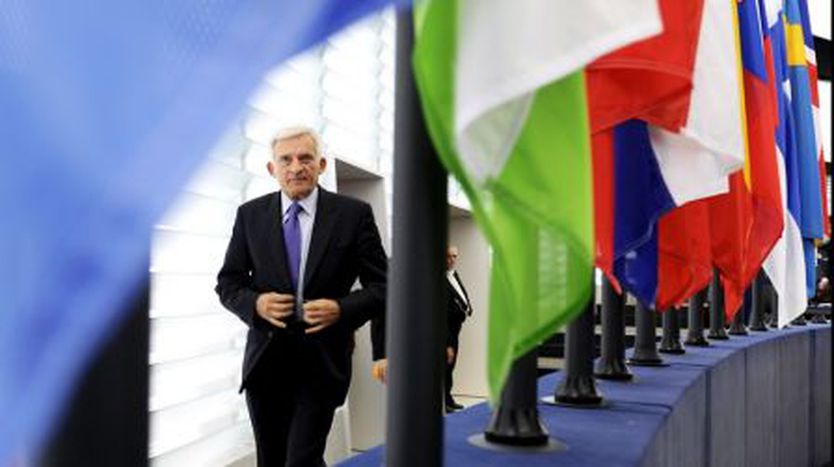
The Missing Link in the Eurozone Governance Debate
Published on
To me it is apparent that the debate is triangular – among the Commission, the ECB, and the European Council, leaving one player out. The European Parliament, that is. The President of the European Council Herman Van Rompuy proposed a “crisis cabinet”. He said that “there is not much hierarchy or organic links between the main players and the main institutions”.
The idea is to include the European Comission President Jose Manuel Barroso, the head of the European Central Bank Jean-Claude Trichet and Mr Van Rompuy himself in this “crisis cabinet”.
At the same time the President of the European Commission called Germany’s plans on improving economic governance in the eurozone as “naïve”. He believes that any treaty reform is not feasible in the moment.
To me it is apparent that the debate is triangular – among the Commission, the ECB, and the European Council, leaving one player out. The European Parliament, that is.
In a way this is understandable. Any further integration of economic governance will encroach on state sovereignty. That is why it is essential to have sound support in the Member States for any further reform.
Then again, the weak conditionality of the Stability and Growth pact, as negotiated by the Member States, failed to perform. Any coordination mechanism short of Treaty reform will probably go the same way. We can see this in the conceptual disputes between Germany and France during the years and even today.
True, the EP did have a debate on economic governance coordination last week. But did it really influence the debate in the EU? Did it reach the European citizens? I am not so sure.
The dark scenario is political divergence rather then convergence. This may well be happening, given some unilateral steps made by Germany. But it should not surprise us – governments do calculate their own tactical interest, betting against the other participants in the currency union. In fact, history is full of such examples where currency unions dissolute due to political disagreement.
The European leaders seem to believe that they can “fix” the eurozone on an intergovernmental level with the support of the ECB, preferably without introducing Treaty reform. It would be great, but it is not possible.
That is why it would be much, much better if the European Parliament had a stronger voice in the debate. It is in the moment the only institution that can provide a forum for open deliberation of diverging political ideas for reform.
On a bitterer note – Member States may well circumvent the public discussion, but they will not fool the markets.



